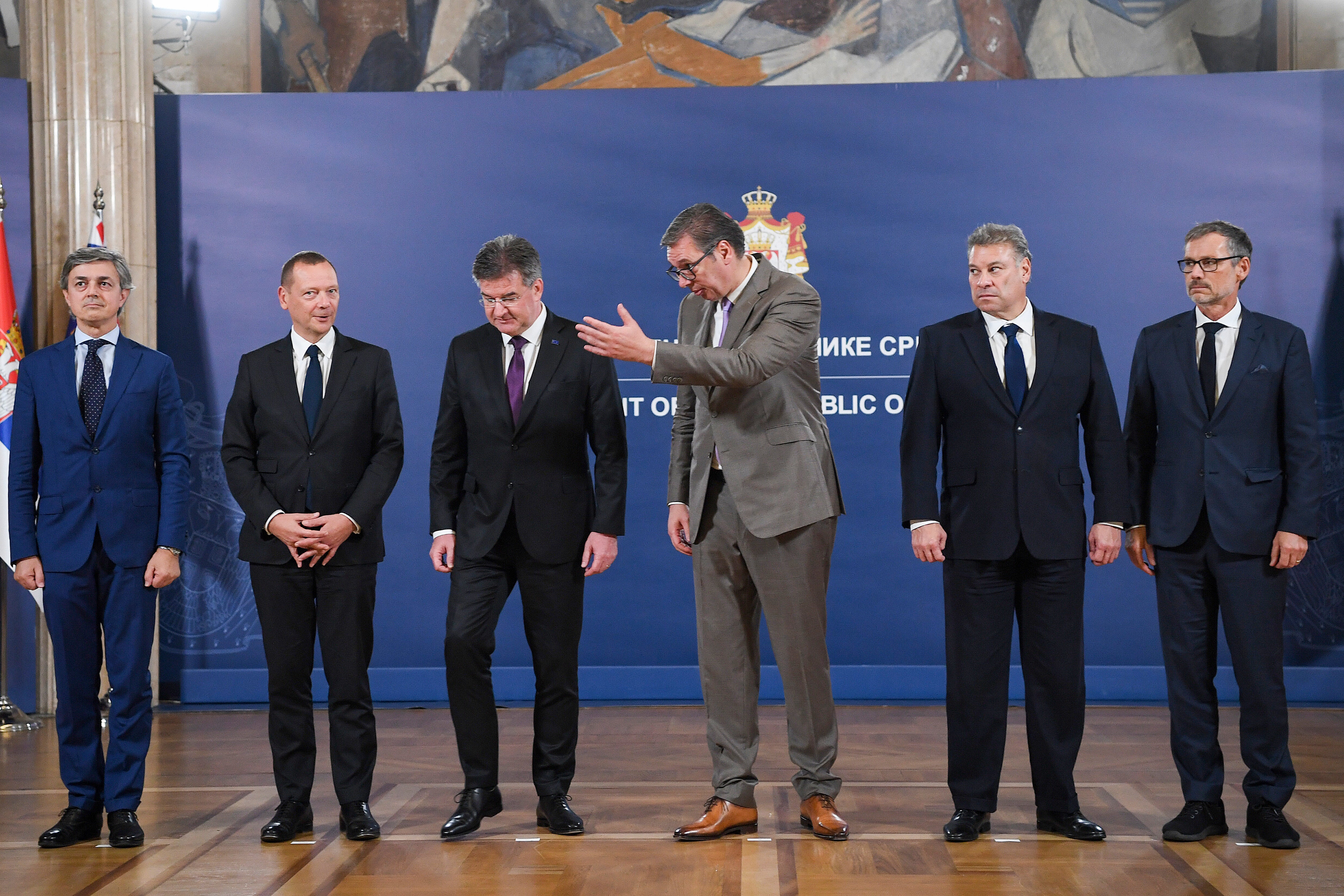Kosovo's premier claims a Serbian criminal gang with government links was behind a September flareup
Kosovo’s prime minister is claiming that a criminal gang from northern Serbia with alleged links to the Belgrade government was behind a September attack in Kosovo that killed a police officer and involved a daylong gunbattle with Kosovo police that left three gunmen dead

Your support helps us to tell the story
From reproductive rights to climate change to Big Tech, The Independent is on the ground when the story is developing. Whether it's investigating the financials of Elon Musk's pro-Trump PAC or producing our latest documentary, 'The A Word', which shines a light on the American women fighting for reproductive rights, we know how important it is to parse out the facts from the messaging.
At such a critical moment in US history, we need reporters on the ground. Your donation allows us to keep sending journalists to speak to both sides of the story.
The Independent is trusted by Americans across the entire political spectrum. And unlike many other quality news outlets, we choose not to lock Americans out of our reporting and analysis with paywalls. We believe quality journalism should be available to everyone, paid for by those who can afford it.
Your support makes all the difference.Kosovo’s prime minister on Monday claimed that a criminal gang from northern Serbia was behind a September attack in Kosovo that killed a police officer and involved a daylong gunbattle with Kosovo police that left three gunmen dead.
Prime Minister Albin Kurti also alleged that Serbia’s Defense Minister Milos Vucevic heads the gang known as the “Novi Sad Clan,” named after the Serbian city of Novi Sad, and further claimed that Serbian President Aleksandar Vucic had links to the gang.
Kurti offered no evidence to back his claims and did not elaborate. He described the gang as a “paramilitary terrorist group.”
Belgrade swiftly dismissed the claims. Serbia's Defense Ministry said it “absolutely rejects the heinous and blatant lies told today by Kurti” and appealed to the international community to act to stop the “incendiary and dirty” campaign by Kosovo's leadership.
Tensions between Serbia and Kosovo flared anew on Sept. 24 when some 30 heavily armed Serbs barricaded themselves in an Orthodox monastery in northern Kosovo, setting off the fighting.
The clashes were among the worst since Kosovo declared independence from Serbia in 2008. It came as the European Union and the United States were trying to mediate and finalize years-long talks on normalizing ties between the two Balkan states.
On his Facebook page, Kurti on Monday proposed that the European Union and the United States “create a special court” for the Novi Sad gang since Kosovo has no jurisdiction inside Serbia.
Kosovo has accused Serbia of orchestrating the Sept. 24 “act of aggression” against its former province whose 2008 declaration of independence Belgrade doesn’t recognize.
Serbia has denied this, and said it suspected an ethnic Serb leader from Kosovo, Milan Radoicic, in the clashes. Radoicic was briefly detained, questioned and released in Serbia earlier this month.
On Saturday, EU and U.S. envoys visited Kosovo and Serbia, urging the sides to resume dialogue on normalizing relations before the bitter tensions result in more violence.
The EU put forward a 10-point plan in February to end months of political crises between the two sides. Kurti and Vucic gave their approval at the time but expressed reservations, which have not been resolved since. It’s unclear when another round of meetings might take place, and the EU appears to have little leverage left.
Kosovo has called on the EU to sanction Serbia for the September flareup and demanded more security.
NATO sent reinforcements to its Kosovo force or KFOR, boosting the 4,500 troops on the ground with an additional 200 troops from the United Kingdom and more than 100 from Romania. It also sent heavier armaments to beef up the peacekeepers’ combat power.
Serbia and its former province of Kosovo have been at odds for decades. Their 1998-99 war left more than 10,000 people dead, mostly Kosovo Albanians.
___
Semini reported from Tirana, Albania. Associated Press writer Dusan Stojanovic in Belgrade, Serbia, contributed to this report.